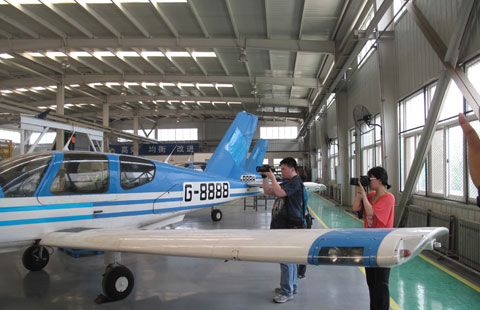Poland's branding in need of polishing
By Wang Chao and Zhong Nan (China Daily) Updated: 2014-05-26 07:12"There is an overland Silk Road and there is a maritime one, and Poland lies on the continental road," she says. "I hope we can have better logistics along this road, so we can facilitate imports and exports with China."
Poland would like to draw Chinese investors to work on railways, logistics centers and cargo stations in Poland to raise transport capacity between the two countries, she says.
|
 |
The majority of Poland's exports to China comprise machinery and equipment (24 percent), motor vehicles (14 percent), metals (12 percent) and plastics and rubber (7 percent).
The Polish government is particularly interested in finding Chinese investors in sectors such as energy, jewelry, yachts and mining machinery.
In November, a subsidiary of China's State Grid signed a contract with a Polish counterpart to erect power lines and electricity substations. The contract is worth about 850 million yuan ($136 million), and it is the first such deal between the two countries.
Chomicki says Poland has not had enough attention from Chinese investors. There are only a few projects from China reaching the level of $100 million, usually mergers and acquisitions.
"Chinese investors are either interested in the developed markets such as the UK and Germany, or less developed such as Africa. But I think Poland has a unique advantage.
"As a EU member, it has the transparency and equal opportunities; and compared with western European countries, our labor is about 50 percent cheaper," Chomicki says.
Forming joint ventures may be ideal because Polish companies have the expertise to perform under EU conditions, and Chinese companies can bring their capital and technological know-how into the country, Chomicki says.
Chomicki, who was previously his country's ambassador to South Korea, says he introduced a TV set maker from that country to Poland when he was there, and now Poland is a major TV set exporter in Europe.
- Feast your eyes on aeroplanes as festival takes off
- Fresh bid to build charging network
- Poland's branding in need of polishing
- China's SME board sees fast growth
- The multibillion-dollar house that Jack built
- China's housing market going through natural adjustment
- Silk Road economic cooperation to bring benefits
- Click profit
















